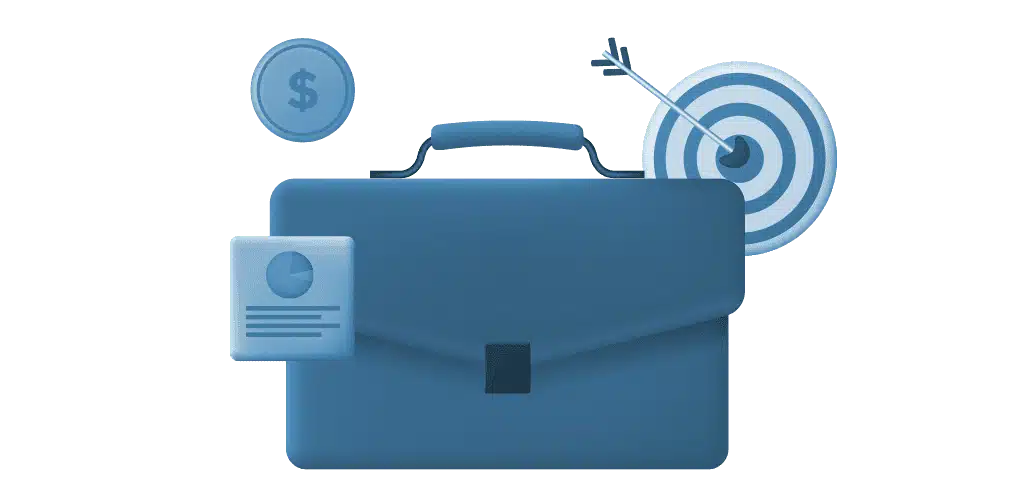Forex Trading Career

Imagine a career where you can work from anywhere in the world, set your schedule, and leverage one of the most dynamic financial markets available.
A career in forex trading offers these exciting opportunities and more. Whether you’re looking for a side hustle or a full-time profession, forex trading has something to offer everyone.
Before embarking on this journey, it’s essential to understand the skills you’ll need, the potential challenges and the steps to get started.
In this guide, we’ll explore everything you need to know to kick-start a successful career in forex trading, from the advantages of this field to the pathways you can take to achieve your goals.
Why Choose Forex Trading as a Career?
A career in forex trading comes with several compelling advantages that attract individuals from diverse backgrounds. Here are some of the top reasons why you might consider diving into the world of forex:
- Flexibility and Freedom – Forex Trading allows you to work from anywhere, at any time. The forex market is open round the clock, giving you the flexibility to fit your trading activity around your lifestyle.
- Independence – As a forex trader, you are your boss. You make the decisions, choose your trading strategies, and decide when to enter or exit a trade. This autonomy appeals to those who prefer to control their financial future without relying on a fixed working environment.
- Unlimited Earning Potential – Unlike a salaried job, forex trading does not have an upper limit on earnings. Your income is directly tied to your skills, market understanding, capital, and strategy execution. With the proper knowledge and approach, the profit potential is significant.
- Low Barriers to Entry – Unlike other financial markets, forex trading requires relatively low initial capital. You can start trading with small amounts, and AvaTrade offers demo accounts to practice trading without any risk.
- Diverse Career Opportunities – From becoming a day trader, a forex analyst, a trading coach or even a portfolio manager, the forex market offers various career paths suited to different skill sets and interests.
Despite the many benefits, it’s important to note that success in forex trading requires more than just enthusiasm. A solid understanding of the markets, a well-thought-out strategy, and the discipline to manage risk effectively are all essential components of a successful forex trading career.
Essential Skills for a Forex Trader
Succeeding in a forex trading career requires more than just market knowledge. It involves developing a specific set of skills that will enable you to navigate the complexities of the market with confidence. Here are the most important skills every forex trader should master:
- Market Analysis Expertise – A successful forex trader must be adept in both technical and fundamental analysis. Technical analysis involves understanding charts, trends and indicators to predict future market movements. In contrast, fundamental analysis focuses on understanding economic data, geopolitical events and other macroeconomic factors that impact currency prices. Comprehensive market analysis will help you to identify the best market opportunities to take advantage of.
- Emotional Discipline – The forex market is fast-paced and can be highly volatile. The potential to make or lose real money can trigger many emotions, such as fear, greed, anxiety, and overconfidence. These emotions can interfere with objective trading. Emotional discipline is, therefore, crucial so that you can stay calm under pressure, stick to your trading plan, and make rational decisions.
- Risk Management – Effective risk management is the foundation of long-term trading success. Some risk management strategies for forex traders include using stop loss and take profit orders, cutting losses early, appropriate position sizing, avoiding correlated trades as well as tracking relevant economic news and events.
- Continuous Learning and Adaptability – The forex market is constantly evolving, and so should your skills. Staying updated with the latest market trends, refining your strategies and learning from both wins and losses are crucial for maintaining a competitive edge. Many successful traders continuously seek out educational resources, such as webinars, courses and market analysis tools. You can also maintain a demo account for practical learning and trying out new strategies risk-free.
- Patience and Perseverance – Trading is not a get-rich-quick scheme; it requires patience and perseverance. You need to follow your trading plan diligently and effectively (waiting for the right set-ups and for your open trades to play out). You also need the perseverance to endure periods of loss, learn from mistakes, and remain committed to your long-term goals.
- Strong Mathematical and Analytical Skills – A good grasp of mathematics and an analytical mindset help traders calculate risk, interpret market data, keep good trading records and develop strategies based on quantitative analysis. This ability to analyse numbers and trends is crucial for making informed trading decisions.
Building these skills will create a strong foundation for a career in forex trading. With a commitment to continuous improvement and the right attitude, you can leverage these skills to navigate the forex market more effectively to achieve your trading goals.
Career Paths in Forex Trading
A career in forex trading offers diverse opportunities that cater to different skills, interests and levels of experience. Here are some of the most popular career paths you can explore:
- Independent Forex Trader – As an independent trader, you manage your account and trade for personal profit. This role offers the most flexibility, allowing you to set your schedule, trade from anywhere and develop your unique trading style. While it offers high earning potential, it also comes with the risk of trading with your capital. To succeed, independent traders must build a strong trading strategy, have a solid risk management plan, maintain discipline and continuously adapt to market changes.
- Proprietary Trader for a Financial Institution – Proprietary traders, or “prop traders,” work for financial institutions or proprietary trading firms, trading the firm’s capital rather than their own. This career path often provides a steady salary with the potential for bonuses based on performance. Prop traders benefit from access to advanced trading tools, research, and mentoring from experienced traders. However, they must meet strict performance metrics, trade within set restrictions, and share their profits with the prop firm.
- Forex Broker or Account Manager – As a forex broker, you facilitate transactions for clients, providing them with access to the forex market. Brokers often earn commissions from each trade their clients make. Alternatively, as an account manager, you manage trading accounts for clients, making trades on their behalf. This role requires strong analytical skills and experience, as you are responsible for achieving profitable results for your clients. It’s an ideal path for traders who prefer working with others and have a deep understanding of market dynamics.
- Forex Analyst or Strategist – Forex analysts, also known as currency analysts or strategists, work for brokerage firms, financial institutions, or media outlets, providing analysis and forecasts about currency markets. They use both technical and fundamental analysis to make predictions and offer insights to guide trading strategies. This role is ideal for individuals who enjoy research, data analysis and writing market commentary. Top analysts often become thought leaders, providing content that influences market perceptions.
- Forex Trading Educator or Coach – With extensive trading experience, you can choose to become an educator, teaching aspiring traders how to navigate the forex market. This path involves creating educational content, such as courses, webinars, books, or one-on-one coaching sessions. It’s perfect for those who have a passion for teaching and helping others succeed in the trading world.
- Portfolio Manager – As a portfolio manager, you manage a portfolio of assets for institutional clients, which may include currencies. This role typically involves a deep understanding of various asset classes, risk management and strategic investment decisions. Portfolio managers must consistently monitor the markets, adjust their strategies and strive for the best returns for their clients.
Each career path requires a unique set of skills and offers different advantages. Whether you prefer the independence of trading independently or the security of working within a firm, the forex market provides numerous opportunities to align your career with your strengths and goals.
Getting Started: Steps to Begin Your Forex Trading Career
Embarking on a forex trading career is an exciting journey, but it requires preparation and a methodical approach. Here are the essential steps to help you get started:
- Educate Yourself – Begin by gaining a thorough understanding of the forex market. Learn how currencies are traded, what influences currency prices and the various trading strategies available. Utilise online resources, attend webinars, read books and explore educational materials from trusted brokers like AvaTrade. A solid foundation of knowledge is crucial before you choose a career path within the forex industry.
- Choose a Reliable Broker – Selecting a trustworthy broker is a critical step. Look for a broker that is highly regulated, has advanced trading platforms, provides favourable trading conditions, and offers comprehensive educational resources and responsive customer support. AvaTrade, for example, is regulated in multiple respected jurisdictions, offers user-friendly trading platforms, and provides a wealth of educational content and exclusive trading resources to support beginners.
- Develop a Trading Plan – A trading plan serves as your roadmap in the forex market. It will detail your trading style and strategy, risk management plan, trading journal, and trading psychology. It will also include your long-term trading goals. A well-crafted trading plan will help you build discipline, eliminate emotional trading, and highlight areas that need improvement. It is important to stick to your trading plan at all times and also to review and improve it depending on market dynamics.
- Practice with a Demo Account – Before risking real money, practice trading with a demo account. This allows you to familiarise yourself with the trading platform, test your strategy in actual market conditions and build confidence without financial risk. AvaTrade offers a free and unlimited demo account where you can practice and refine your skills and strategy.
- Start Small and Scale Up – Once you feel confident with your strategy on the demo account, start trading with a small amount of capital. Success in demo trading does not guarantee you will rake in profits when switching to a real account. This is why it is important to start small with minimal risk and gradually increase your trading size as you gain experience and build confidence. Remember, consistency is more important than quick profits, especially in the early stages of your career.
- Implement Risk Management Practices – Always prioritise risk management. Set stop-loss orders to limit potential losses, use appropriate trade sizes and never risk more than you can afford to lose. Effective risk management is key to preserving your capital and staying in the game for the long term.
- Continuously Learn and Adapt – The forex market is dynamic, and continuous learning is essential. Stay updated on market trends, economic news and geopolitical events that affect currency prices. Regularly review your trades, analyse your successes and failures and refine your strategies based on what you learn. AvaTrade offers a range of resources, including market analysis and educational webinars, to help you stay informed.
- Leverage AvaTrade’s Resources – Take full advantage of the tools and resources provided by AvaTrade, such as advanced charting tools, automated trading options, educational materials, AvaProtect, AvaSocial and Trading Central. These resources can help enhance your trading skills, manage trading risks and support your growth as a trader.
Starting a forex trading career is a journey that requires time, effort and a commitment to continuous improvement. By following these steps and staying disciplined, you can set yourself up for a successful and rewarding career in the forex market.
Conclusion: Your Journey Starts Now
A career in forex trading offers unparalleled flexibility, independence, and the potential for substantial financial rewards. However, success in this field requires dedication, continuous learning, patience, and a well-structured approach. Whether you aspire to be an independent trader, a market analyst, or a portfolio manager, your journey begins with the right knowledge, skills and tools.
At AvaTrade, we are committed to supporting you throughout your trading career. Our platform provides a comprehensive suite of educational resources, a user-friendly trading platform and access to advanced trading tools to help you make informed decisions and achieve your financial goals. With over 15 years of experience in the industry, AvaTrade is a trusted partner for traders worldwide, offering competitive spreads, robust security, and dedicated customer support.
Ready to take the first step towards a successful forex trading career? Sign up for a free demo account with AvaTrade today and start practising your trading skills in a risk-free environment.
Explore our extensive educational resources, join our live webinars, and experience the world of forex trading with confidence. Your journey to becoming a successful Forex trader starts here!
Get Started with AvaTrade Now!


















